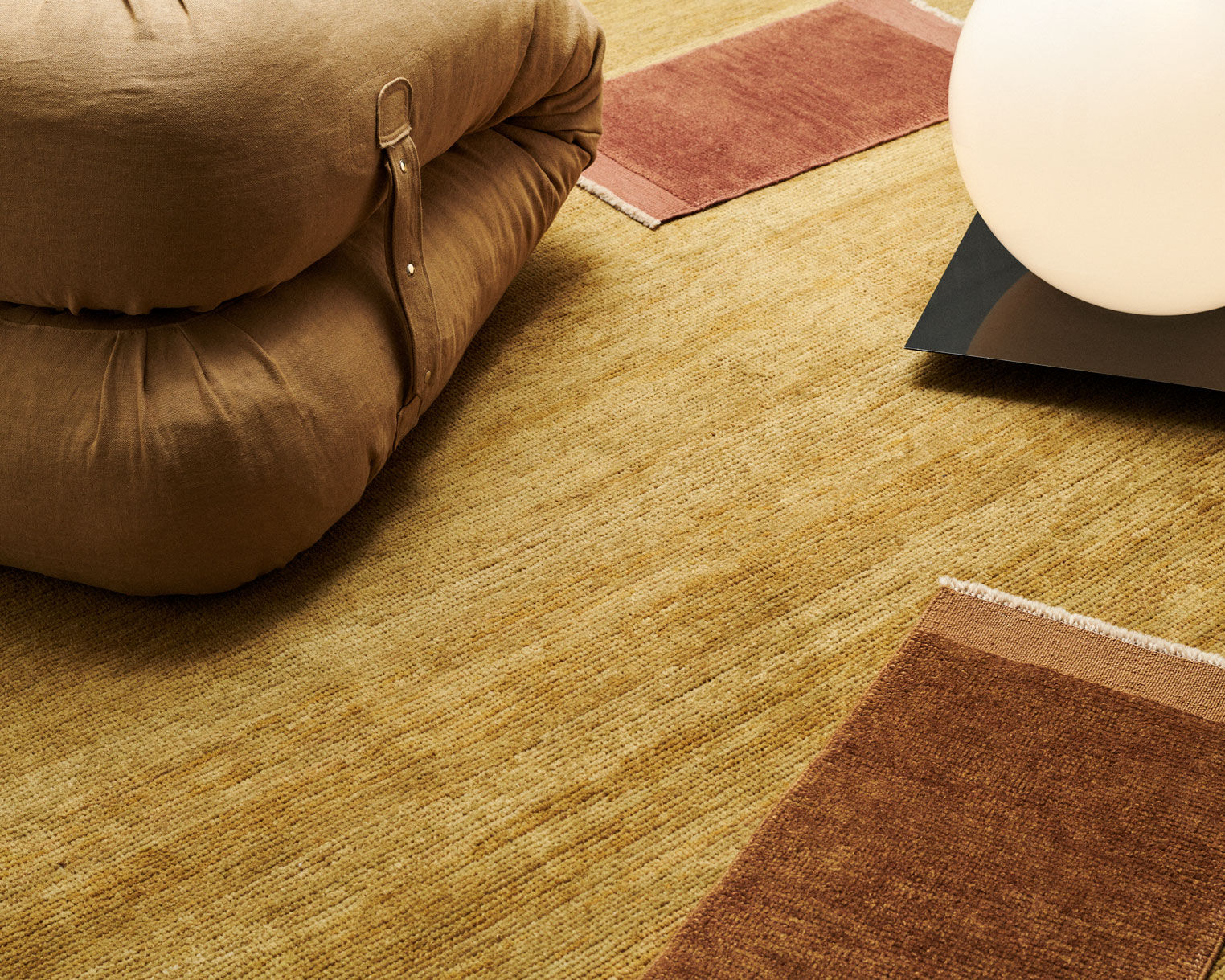
Last month, Halcyon Lake Creative Director Amandine Ringot had a conversation with the editor of Open magazine, a new publication by Marshall White Real Estate. In the following interview, Amandine talks about the processes and philosophy behind our brand, sharing its ethos, partners and the journey that has underpinned the last decade of Halcyon Lake.
~
Please tell us how Noel Kiely’s pioneering introduction of Berber carpets to Australia sparked the genesis of Halcyon Lake, and how has its ethos influenced the evolution of this family business over the past five decades.
Halcyon Lake was founded as a natural progression from Berber Carpets International, which was a very successful carpet style in the 70’s and early 80’s; the era of the “natural” look. During the late 80’s and early 90’s, interiors trended towards elegance. Halcyon Lake met this demand with high-quality European carpets and bespoke designs, catering to both retail and design specialists. Today, our legacy as a leading purveyor of fine rugs in Melbourne continues.
What fundamental motivations underpin the philosophical foundation of Halcyon Lake?
Craftsmanship, quality, and ethical practices are central to us. Our collections celebrate global weavers, connecting tradition with innovation. Preferring enduring textures and weaving techniques over trends, we’ve always valued the essence of handmade rug-making. By investing in high-quality products, we support the rug-making industry’s sustainability, enriching artisan lives and their communities.
Could you elaborate on the nature and depth of your global partnerships with artisans and manufacturers? In what ways have these collaborations shaped your design methodologies and the distinct quality of your final products?
Over the years, we’ve maintained relationships with makers from Germany, Sardinia, France, Belgium, Morocco, Turkey, Iran, Afghanistan, Colombia and Nepal. Many of these partnerships, crucial since Halcyon Lake’s early days, involve regular collaboration on designs and collections.
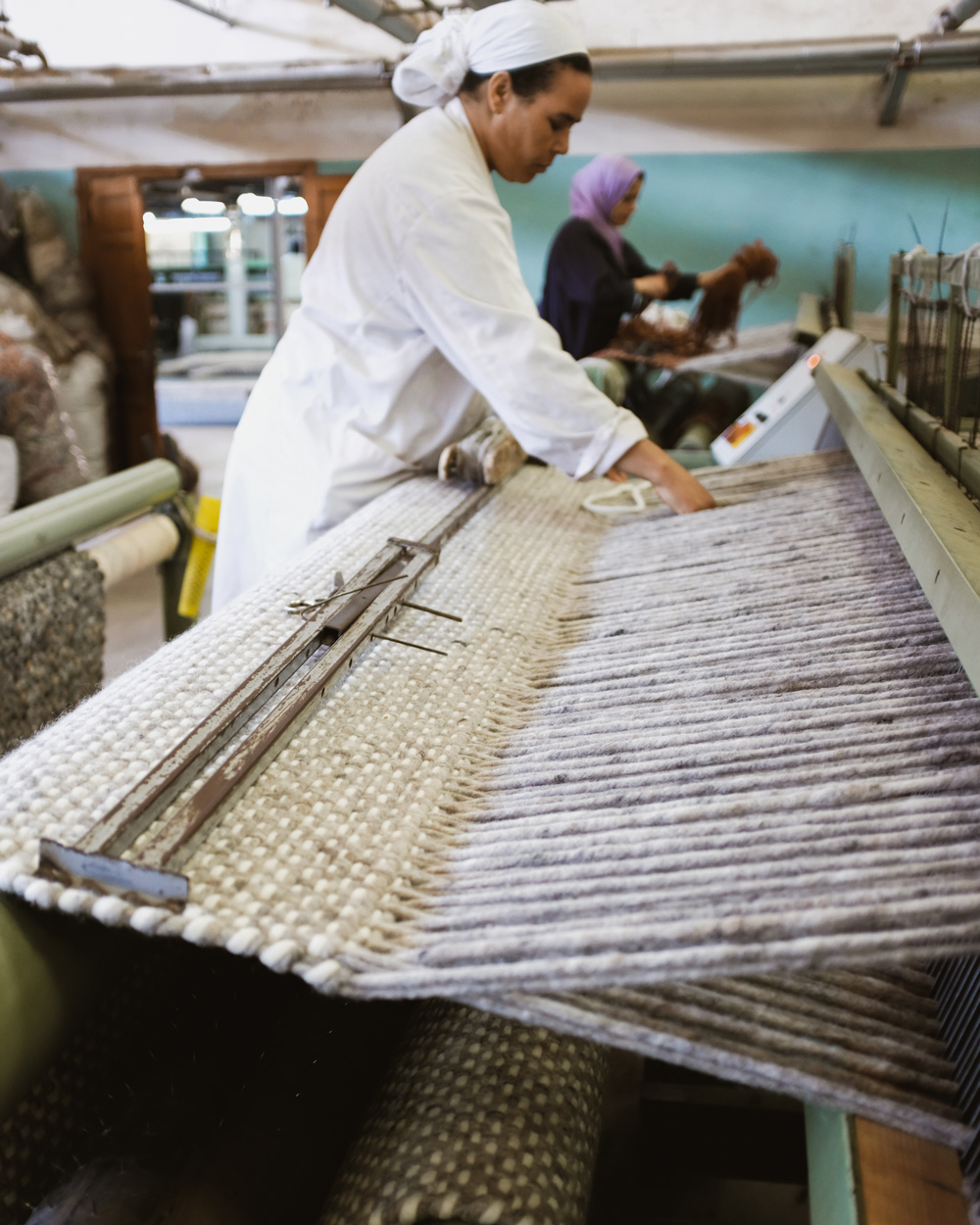
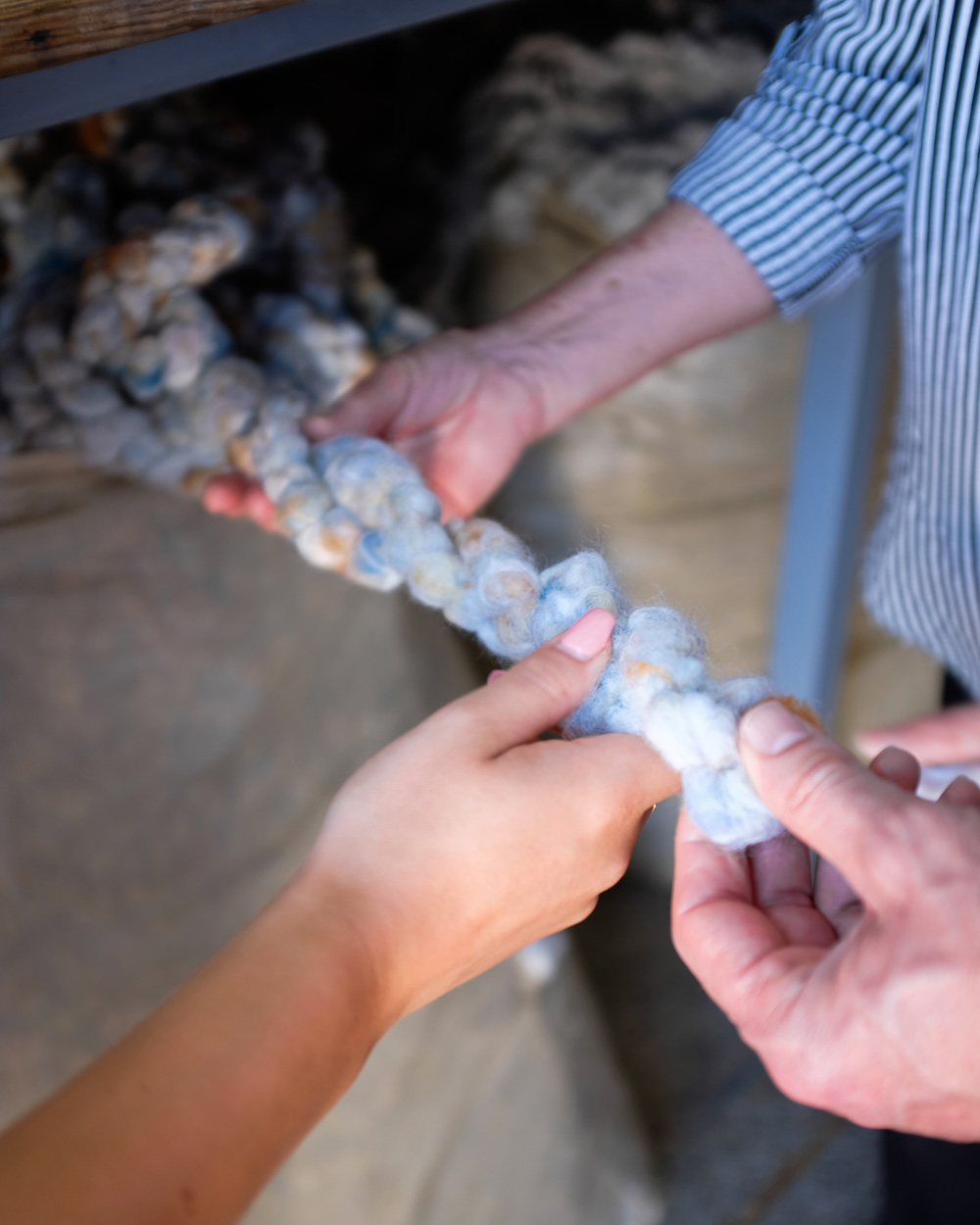
How does Halcyon Lake’s global outlook influence the way you source and curate your collections to simultaneously honour traditional rug making artistry and cater to contemporary market demands?.
We annually attend trade fairs like Milan Design Week and Maison & Objet to stay updated with design trends and meet our makers who often exhibit. Additionally, we visit their weaving workshops to witness our rugs’ creation and grasp their artisanal processes. Experiencing the craft’s culture firsthand, hearing our makers’ stories, and observing their locales deeply informs our collections and enriches our understanding.
In your opinion, how can investing in rugs contribute to and alter the aesthetic and emotional landscape of a home setting?
Rugs are what tie a room together. They can help a small space feel bigger or bring cohesion in large open spaces. Rugs can help soften the acoustics, add warmth and texture to hard flooring, insulate surfaces or inject colour in a space. Though more often than not, rugs are the last piece of a puzzle and are selected last, having to fit a predetermined scheme and leaving fewer options in terms of design, colour and budget. We think of rugs as the foundation of a living space and we always suggest our clients to consider their rug options at the start of a project, if possible.
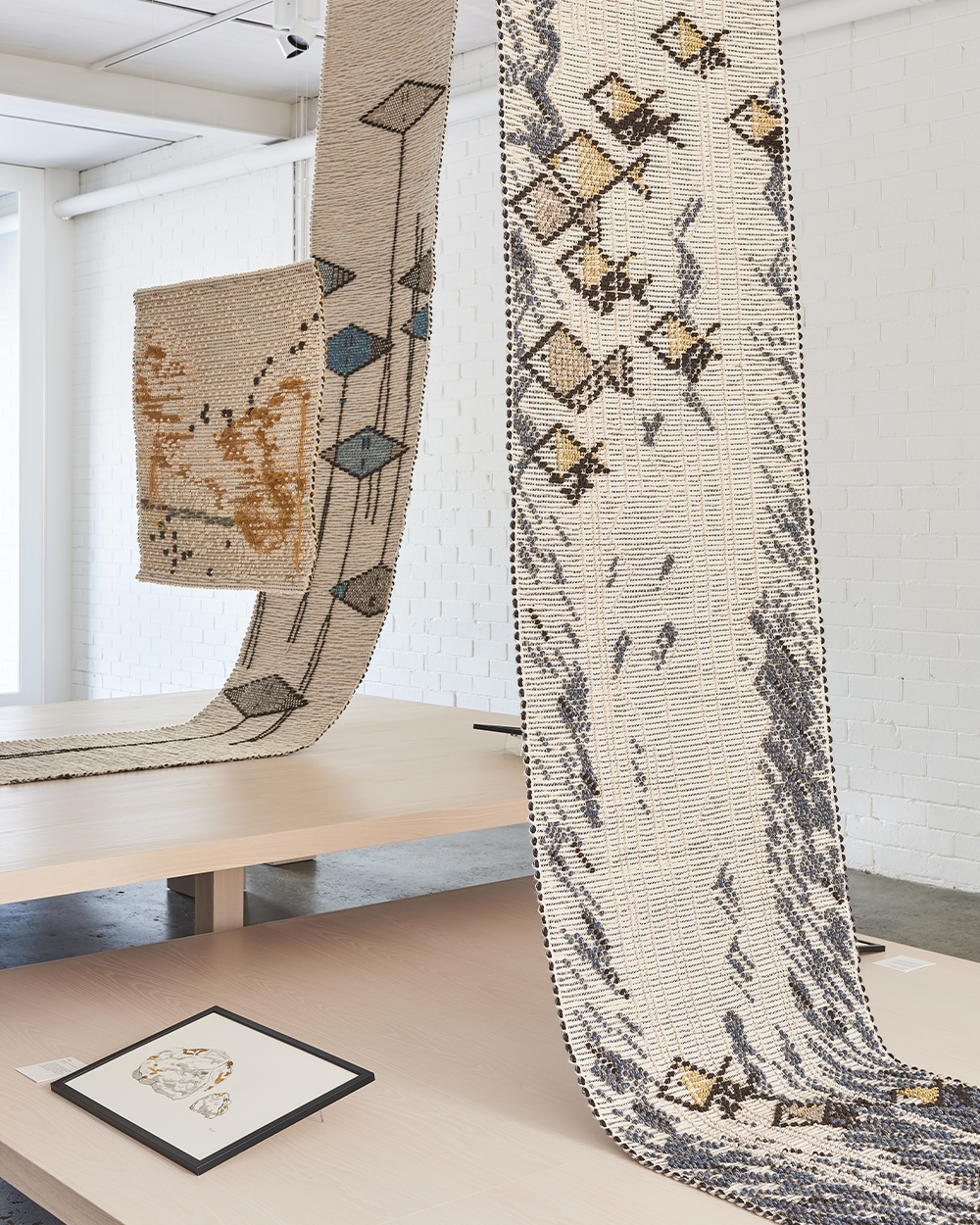
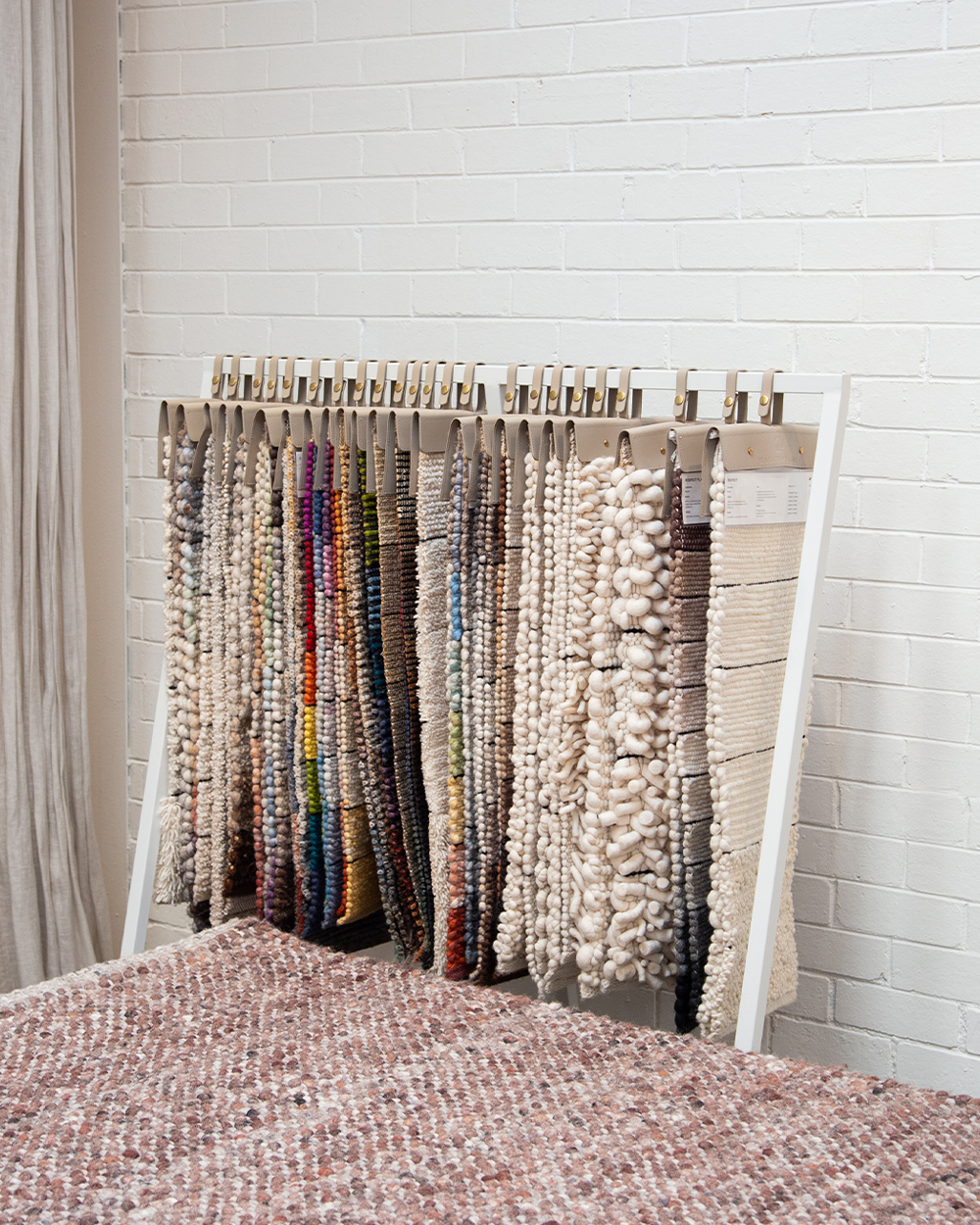
What is your approach towards identifying an ideally suited piece for potential clientele, and what distinctive features can they anticipate when investing in a Halcyon Lake creation?
We emphasise a ‘Buy once, buy well’ philosophy for our clients. To ensure longevity, we consider the rug’s intended room, size, and anticipated foot traffic, including considerations for pets and kids. Once practicalities are addressed, we delve into style preferences using floorplans, design schemes, and mood boards. Our Richmond showroom offers a vast sample range, which clients can borrow to visualise in their spaces, and we ship samples to interstate clients daily.
What is your perspective on the trajectory of the artisanal rug-making sector, and consequently, what future envisions do you hold for Halcyon Lake within this landscape?
The global shift towards mass production challenges the handmade rug sector, with fierce competition, reduced prices, and quicker lead times. Furthermore, the decline in weavers, lured by city living over traditional rural weaving locales, threatens the industry. The key to sustaining this invaluable trade lies in ethical work practices and fair wages. We take pride in partnering with makers and workshops championing these values, striving to uphold this diminishing industry.